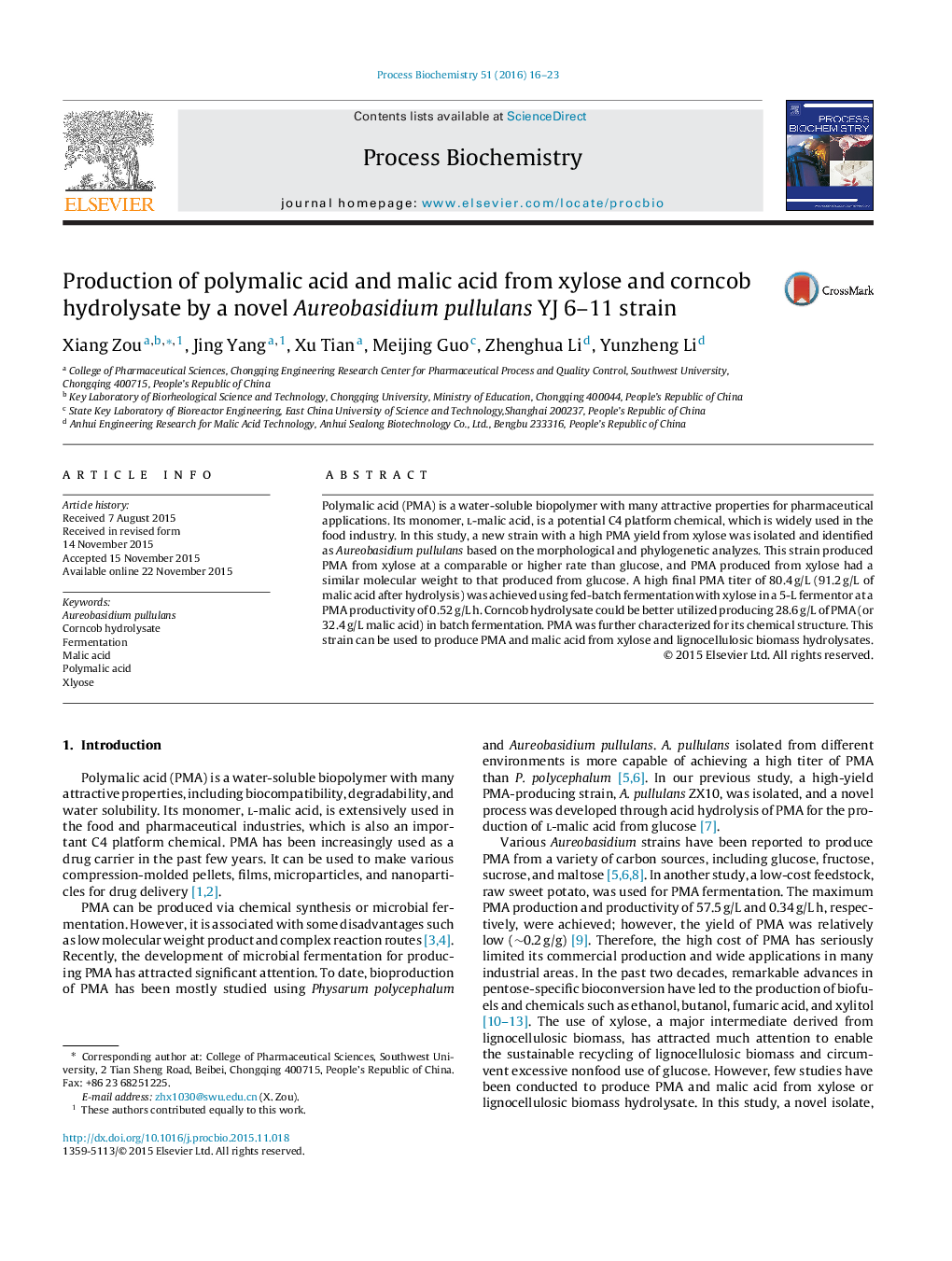| Article ID | Journal | Published Year | Pages | File Type |
|---|---|---|---|---|
| 34232 | Process Biochemistry | 2016 | 8 Pages |
•A new strain with a high polymalic acid (PMA) yield from xylose was successfully isolated.•This strain produced PMA from xylose at a comparable or higher rate than glucose.•Different carbon sources produced PMA with a similar molecular weight.•The strain can better utilize corncob hydrolysate.
Polymalic acid (PMA) is a water-soluble biopolymer with many attractive properties for pharmaceutical applications. Its monomer, l-malic acid, is a potential C4 platform chemical, which is widely used in the food industry. In this study, a new strain with a high PMA yield from xylose was isolated and identified as Aureobasidium pullulans based on the morphological and phylogenetic analyzes. This strain produced PMA from xylose at a comparable or higher rate than glucose, and PMA produced from xylose had a similar molecular weight to that produced from glucose. A high final PMA titer of 80.4 g/L (91.2 g/L of malic acid after hydrolysis) was achieved using fed-batch fermentation with xylose in a 5-L fermentor at a PMA productivity of 0.52 g/L h. Corncob hydrolysate could be better utilized producing 28.6 g/L of PMA (or 32.4 g/L malic acid) in batch fermentation. PMA was further characterized for its chemical structure. This strain can be used to produce PMA and malic acid from xylose and lignocellulosic biomass hydrolysates.
Graphical abstractFigure optionsDownload full-size imageDownload as PowerPoint slide
